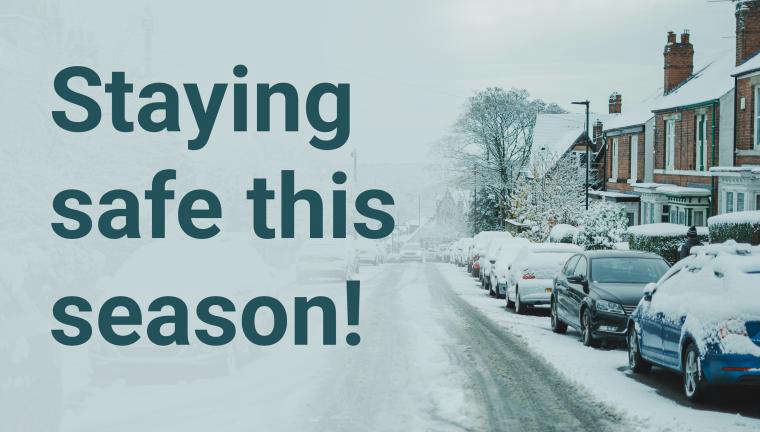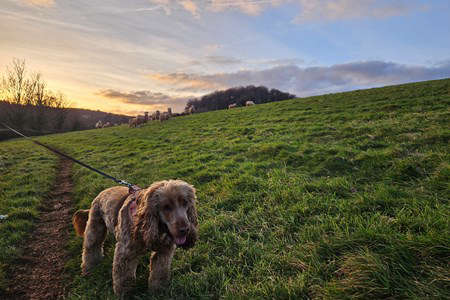
This winter Devon and Somerset Fire and Rescue Service are sharing ways that everyone can stay safe this season.
We all want to cosy up during the colder months as well as feel festive, but it’s important to be aware of the fire risks that come with staying warm, celebrating special days, and cooking.
They are encouraging everyone to plan their winter months and festivities safely, and to look out for neighbours and loved ones who may need extra support in this colder season.
Here are some advice and tips to ensure that you, and those around you, are safe and sound:
Cooking safely
- Always supervise your cooking: Using a cooking timer can be a great way to minimise distractions.
- Keep your cooking and hob area clear: Clutter and items near cooking areas, such as a tea towel near the hob, can result in an unintended fire.
- Choose a takeaway: Cooking whilst under the influence of drink or drugs can lead to an incident. Choose a takeaway in these conditions.
- Turn pot and pan handles inwards: This reduces the risk of a hot pan being knocked over accidentally.
- Avoid placing air fryers on top of hobs: There is a risk that the hob can accidentally be switched on and cause a fire.
- Switch off cooking appliances: Check that you have switched off all of your cooking appliances once you have finished.
- Ensure plug sockets are not overloaded: We recommend that anything which produces a form of heat, such as a toaster, air fryer, or kettle, should have its own wall socket, not an extension lead.
For more information on cooking safely this winter season, see fire safety in the kitchen.
Staying warm
- Check portable heaters for signs of damage: If there is any frayed wiring or visible damage, do not use it and dispose of it safely.
- Keep heaters away from combustibles: Leave at least one metre between heaters and combustibles such as curtains and furniture, and do not use them to dry clothes.
- Switch items off: Switching off electrical items can help reduce your risk of an unexpected fire.
- Open fires and wood burners: Make sure you have your chimney swept, check that you are using the correct fuel for your appliance (seasoned wood), and keep combustibles away from the flames.
Extra tip: Using a fireguard can reduce the risk of stray sparks causing an unintended fire. - Check electric blankets for signs of wear or damage: If you notice signs of damage, do not use the blanket as it could put you at risk of a fire, and follow the manufacturers instructions for use. For extra safety, we advise you replace your electric blanket every 10 years.
Unseen risk
- Install a carbon monoxide alarm in each room with a solid fuel burning appliance: Carbon Monoxide is colourless and odourless, so it is important to have working alarms.
Help others
- Check in on vulnerable people around you: During the winter, vulnerable people can be at a higher risk of a fire-related incident when trying to stay warm. Check in on your neighbours to help them stay safe, assist them with checking their smoke alarms are in good working order and that they have clear escape routes and emergency plans if they need them.
For more information on heating safety see stay warm safely this winter.
Emollient creams
People using emollient creams should not place themselves near heat sources or naked flames.
These creams are important for medical uses, but to ensure you are as safe as possible, you need to be be aware of the potential fire risks and how to reduce these risks.
Emollients can leave a flammable residue on fabric and clothing. Washing at any temperature will not remove it completely.
We advise that anyone using these creams does not place themselves close to a fire, naked flame or heat source. It is important to follow all usage guidance for your specific emollient cream, wash exposed clothing and fabric separately to other items, and avoid cooking whilst wearing clothing which has been exposed to emollients.
Festive holidays
- Keep decorations away from heat sources and naked flames: Paper, fabric, and dried wreath decorations can be can be highly flammable.
- Check fairy lights for signs of damage: Don't use them if they show signs of damage, such as frayed wiring.
- Switch off decorative lights before bed or before you go out.
- Ensure that your electrical sockets are not overloaded
- With electronic devices, follow the manufacturers guidance to ensure that you are using them as safely as possible.
- Check your escape routes when planning and putting up Christmas trees: Double check that your tree and other decorations do not block escape route. Check that you and your guests know where exits and escape routes are if there were to be an emergency.
- Keep your Christmas tree watered and away from heat sources: A real Christmas tree can be extremely flammable, so it is important to be aware of how to reduce your risks.
Batteries
- Use a reputable supplier: We advise you purchase any electrical or battery items from a trusted or reputable seller and look for the CE mark.
- While cheaper alternatives can be appealing, they often do not meet fire safety regulations and can pose a risk of fire to your household.
- Keep some spares: Stock up on extra batteries for those festive mornings with new gifts! It can be tempting to remove batteries from devices like smoke alarms to test new gifts, but this means that you are without a working smoke alarm. Stock up on extra batteries so that those important things like smoke alarms can continue to keep you safe.

 Rural Affairs officers welcome new law to crack down on livestock attacks
Rural Affairs officers welcome new law to crack down on livestock attacks
 Hospiscare needs your help with a unique ‘double your money’ fundraising challenge
Hospiscare needs your help with a unique ‘double your money’ fundraising challenge
 County Council invites residents to help shape 2026/27 budget
County Council invites residents to help shape 2026/27 budget
 ‘Pop-up’ vaccination clinics being held in several communities this week
‘Pop-up’ vaccination clinics being held in several communities this week











